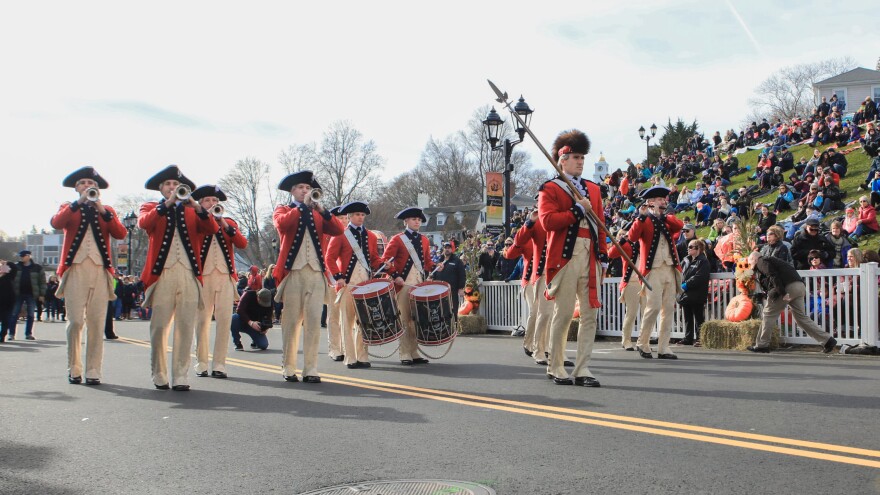Plymouth this week is celebrating the 400th anniversary of the “first Thanksgiving” feast, an event enshrined on postage stamps, honored in parades and reenacted by children in schools across the country every year.
“It’s a national holiday, and it started right here in Plymouth,” said Olly DeMacedo, longtime organizer of the “America’s Hometown Thanksgiving Parade,” which was held Saturday and re-airs Thursday on WCVB-TV.
But several other states claim they actually held the first Thanksgiving.
Organizers of the annual Virginia Thanksgiving Festival have long insisted English settlers in their state were the true originators in 1619 — two years before the Pilgrims held their famous feast.
They even sent a delegation to Massachusetts in 1961 to stake their claim. The Virginians presented live 15-pound turkeys to the governor and the chair of Plymouth’s board of selectmen, and invited both men to their festival.
“It’s high time the American people realized that America’s first Thanksgiving was actually celebrated in Virginia rather than in Massachusetts,” the delegation announced after arriving at Logan airport, the Boston Globe reported at the time.
The Massachusetts officials declined, and the paper later reported that the gathering of “fake Pilgrims with southern drawls” was spoiled by New England-style sleet, hail and rain.
Some historians in Texas contend an even earlier Thanksgiving was held in El Paso in 1598.
Meanwhile, the Jacksonville Historical Society in Florida argues the first feast involving Spanish settlers and Indigenous people occurred in 1565 — decades before the Pilgrims left Europe.
The group goes so far as to suggest the most historically accurate Thanksgiving meal could be alligator, rather than turkey.
“There’s no question that the settlement of St. Augustine predates the Pilgrims’ colonization of Plymouth,” said Alan Bliss, chief executive of the Jacksonville Historical Society. “Now, whether we define their celebration of safe arrival in the new world as a Thanksgiving, that’s open to some debate.”
In the view of many locals, though, there is no debate.
“Every year, we hear El Paso or somebody else,” said DeMacedo, organizer of the Plymouth parade. “People want it bad, but it’s ours, and we own it.”
This article was originally published on WBUR.org.
Copyright 2021 WBUR. To see more, visit WBUR. 9(MDExNDI3NjUzMDEzNjkzMTgzNTExNDFlYQ004))

